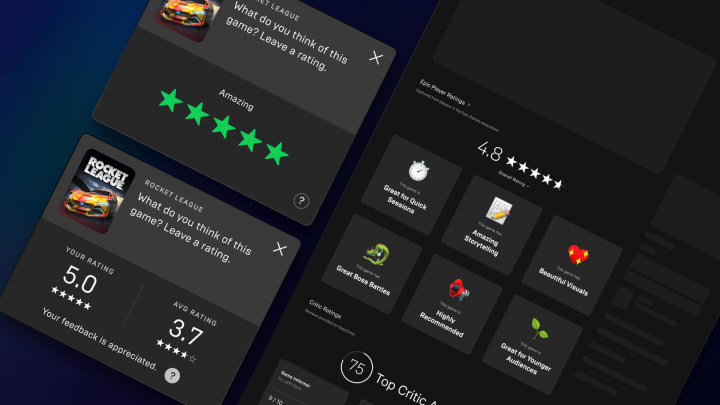Epic Games Store Introduces Anti-Review Bombing Rating System

The Epic Games Store has introduced a ratings system, and Epic Games says it's designed to prevent consumers from review bombing games.
Players have employed review bombing several times in recent years, flooding games with negative reviews as a form of protest. Its motivations are varied; the practice is as often used to decry anti-consumer monetization schemes as to attack games whose politics the reviewers find objectionable. Platforms such as Steam and Rotten Tomatoes have had to take steps to mitigate review bombing, from preventing comments before a film's release to hiding off-topic game reviews.
The latest Epic Games Store update focused on a feature we know you've been waiting for.
— Epic Games Store (@EpicGames) June 17, 2022
Learn more about the Ratings & Polls update here: https://t.co/DQT4VVbbMY pic.twitter.com/nwvORoE5pj
To prevent review bombing, Epic Games won't allow every player who owns a game to review it. Instead, Epic will choose owners who have played a game for more than two hours at random, asking them to review the game on a five-star scale. Those scores will then be combined to create an "Overall Rating" for the game.
"Because these requests are randomized, we won't spam our players, and we probably won't ask about every game or app used," Epic wrote in a blog post announcing the system. "This approach protects games from review bombing and ensures people assigning scores are actual players of the games."
A separate but related feature would poll players at the end of play sessions to ask them questions about their experience. Some questions will be simple yes or no affairs — whether the game is better played with a team or not, say. Others ask the player to select one option from several, to describe the game's graphics or its level of difficulty.
"After enough players have responded to the polls, their answers will help generate tags for the respective product pages," Epic wrote. "These tags can be used to filter games and apps within the Epic Games Store. As these tags grow over time, they'll be able to inform players on content and improve discoverability — helping our players find more games to enjoy!"
Eventually these tags will appear on the store's Category pages, and will be used to create custom tag-based categories.